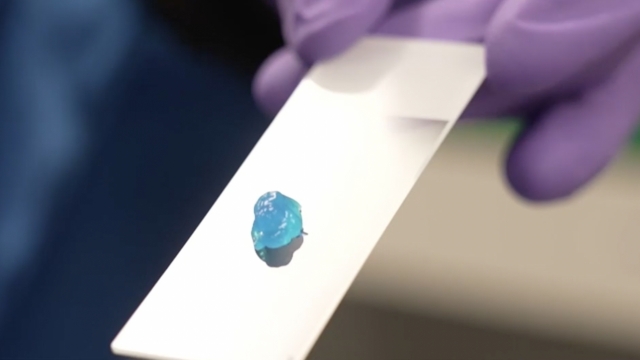GLP-1 antagonist diabetes and weight loss drugs like Ozempic, Victoza, Trulicity, and Wegovy are popular and expensive. Scientists have developed an experimental hydrogel that would innovate the daily or weekly drug injections to something that could potentially be taken a few times a year.
Hydrogels are everywhere — contact lenses, boba tea and Jell-O, for example. Hydrogels have long been studied for drug delivery, getting drugs into the body, but getting a gel through a thin needle remained a challenge. Structurally, the material stayed clunky.
"You can crush up Jell-O, but it's still Jell-O," Eric Appel, associate professor of materials science and engineering at Stanford University explains.
Appel is the principal investigator on a study about the new hydrogel in which the tiny particles that make it up work like velcro. In an injection syringe, the hydrogel goes from thick gel to a liquid to pass through the needle, and immediately back to gel. It stays firm after injection and forms a depot of a high dose of the GLP-1 antagonist medication, dissolving safely and slowly over longer intervals of time.
The hormone glucagon-like peptide 1 or GLP-1 is the key piece in popular weight-loss and diabetes drugs semaglutide, liraglutide and dulaglutide that trick the body into feeling full and increase insulin production. Those can be expensive and burdensome on patients, taken daily or once a week, costing around $1,000 out of pocket.
Diabetes is among the most expensive chronic illnesses, making up nearly $413 billion in 2023 — 1 in every 4 health care dollars spent, according to the American Diabetes Association.
Fewer injections could potentially dramatically lower the cost of GLP-1 drugs for diabetes and weight loss. More consistency from the sustained hydrogel dose could mean better health outcomes.
In their study that looked at the hydrogel in rats, scientists found one hydrogel shot worked for some 42 days in rats, the equivalent of four months in humans. Human trials are still years away. Researchers will test pigs next and then apply to the FDA to approval human trials.
SEE MORE: Majority of the world could be overweight by 2035. How can we stop it?
Trending stories at Scrippsnews.com



